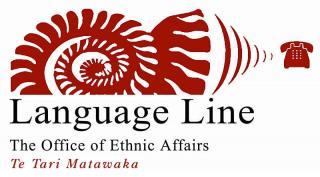- Home
- News
- Screening Matters, Issue 44, February 2014
- Language Line interpreter service helping with informed consent
News
- Screening Matters Newsletter
- April 2019
- April 2018
- December 2017
- August 2017
- April 2017
- December 2016
- October 2016
- March 2016
- November 2015
- August 2015
- June 2015
- April 2015
- February 2015
- December 2014
- October 2014
- August 2014
- June 2014
- April 2014
- February 2014
- December 2013
- October 2013
- August 2013
- June 2013
- April 2013
- February 2013
Screening Matters
The National Screening Unit newsletter
In this issue:
- Collaboration achieving results for Newborn Metabolic Screening Programme
- BreastScreen Aotearoa now fully digital
- Book-your-own online appointment system proving popular with colposcopy patients
- Language Line interpreter service helping with informed consent
- Management of women who have had a smear or colposcopy and treatment overseas
- HPV immunisation history: why is this important?
- Updated National Policy and Quality Standards for BreastScreen Aotearoa available
- NCSP Register Central Team update
Language Line interpreter service helping with informed consent

The service offers professional interpreter services in 44 languages and is available from Monday to Friday 9am – 6pm and Saturday 9am – 2pm.
Waikato District Health Board (DHB) is one of many DHBs using Language Line. It funds the service for women who need to access it for the National Cervical Screening Programme (NCSP) or the Antenatal HIV Screening Programme delivered in primary care, and for breast screening clients. The service is free to the client needing the interpreting service.
Once an organisation is signed up to the service, it is given a confidential 0800 number to connect to the Language Line call centre when an interpreter is needed. A woman interpreter can be requested.
The caller stays on the line while the service connects with an appropriate interpreter, which usually only takes a couple of minutes, and by using a speaker phone or handing the phone to the client, the interpretation can begin.
Clare Coles, Waikato DHB’s Service Manager Breast Care and Screening, says she’s a big supporter of Language Line, and using it is an important part of obtaining informed consent for procedures where women speak little or no English.
“Although relatives, friends and neighbours can be capable interpreters they may take on an advocacy role rather than the neutrality of a professional interpreter. Also, clients may not be happy to disclose some information with a person they know present.
“The feedback is that women like the interpreter service because it’s totally anonymous – they’re very unlikely to know the interpreter. Before Language Line, finding an interpreter who didn’t know the client could be a problem in smaller communities, or when the language spoken was less common. Anonymity is especially important in screening because we’re talking about very personal procedures. It’s great that a female interpreter can be requested too.”
Clare says the connection to an interpreter is always quick and doesn’t have to be booked in advance.
More information about Language Line, including a video demonstration of how it works and details about available resources such as booklets, posters and DVDs, can be found on the Ethnic Communities website.
To receive the Screening Matters newsletter by email, fill out our sign-up form.

